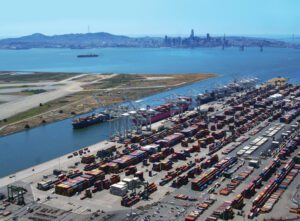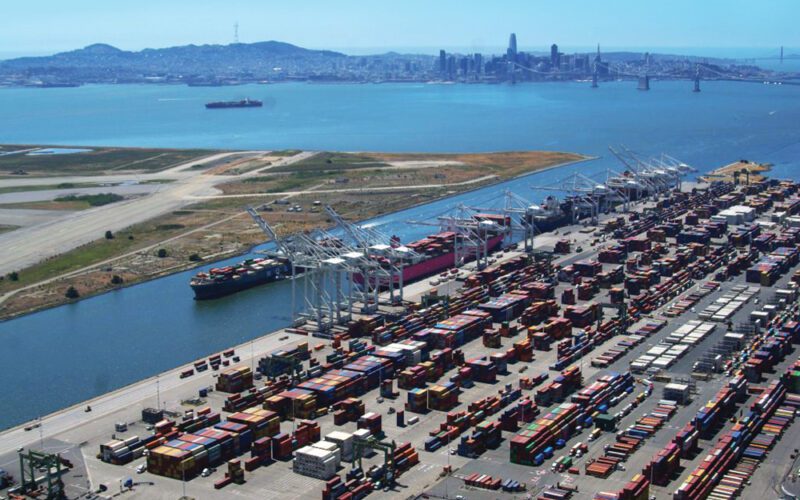
The California Association of Port Authorities (CAPA) in mid-November hosted an event that featured state government officials, foreign dignitaries and California port leaders discussing global trade partnerships and green shipping corridor programs.
During the event, which was held in conjunction with the Asia-Pacific Economic Cooperation (APEC) Summit in San Francisco, California port executives pledged to advance the state’s commitment to zero-emission port and shipping activities, and developing partnerships along vital trade corridors that power the global economy.
The state’s two-way trade with APEC member economies totaled $536 billion last year, or 77.2% of all California trade—and served as a platform to highlight the state’s efforts to rapidly cut the sector’s carbon footprint. International maritime shipping accounts for roughly 3% of planet-warming pollution worldwide.
“Recently, we have made historic progress in creating new trans-Pacific partnerships to electrify port operations and establish green shipping corridors,” California Lt. Governor Eleni Kounalakis, who serves as California’s Representative for International Affairs and Trade, said. “California must continue that progress by expanding clean energy and clean transportation programs that will create good-paying jobs.”
“Every day, California ports work closely with APEC partners to expand economic opportunities and advance environmental initiatives to fight climate change,” CAPA Executive Director Martha Miller said. “Together, we can ensure that California and the Asia-Pacific community achieve prosperity now and thrive for future generations to come.”
In just the past year, the administration of California Gov. Gavin Newsom has forged climate compacts with governments in China, Australia and Japan focused on electrification and low-carbon green growth. California ports have inked nine different agreements with ports throughout the Asia-Pacific region to establish green shipping corridors.
Notably, in October the Port of Los Angeles signed a memorandum of understanding with the Port of Guangzhou to partner on sustainability initiatives on the same day Newsom visited the Chinese city.
“In many ways, California’s future begins at our ports—places that drive the interconnection with so many of our APEC partners across commerce and trade, and that provide the ecosystem for those partners to build upon one another’s investments to drive sustainable growth and decarbonization,” Dee Dee Myers, a senior advisor to Newsom, said.
“The state’s recent, historic supply chain investments will not only support our drive to realize that sustainable future, but also improve efficiency and direct access to our ports for those who use them every day including our industry leaders, small businesses, and international trade partners,” she added.
CAPA is made up of 11 major deepwater port authorities across California. The ports that comprise the organization are responsible for handling 38% of all containerized imports and 28% of all exports in the U.S. More than a million California jobs and three million jobs nationally are linked to trade through CAPA member ports, according to the organization.

